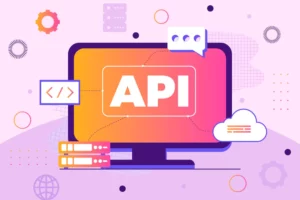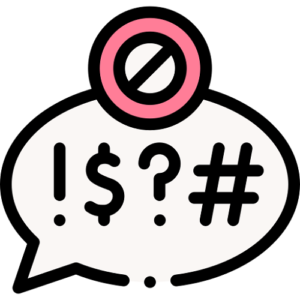Do you want to know the most common use cases of the Bad Words Filter API? If so, keep reading to find out!
Let’s start by saying that the Internet is a big place. And, as such, there are many different types of content that can be found on it. For instance, there are websites that are designed for children and teenagers; whereas there are others that are made for adults only.
Because of this, there are also some words that we cannot find on some websites or platforms. This is because many of these websites and platforms use a filter that prevents us from seeing these words, because some words are considered offensive or inappropriate by most people.
Therefore, if you want to create a website or platform where people can share their opinions, thoughts and feelings freely; then you need to make sure they can do so without worrying about the words they use. This can be achieved by using a Bad Words Filter API.
What Is A Bad Words Filter API?
An application programming interface (API) allows two programs to communicate with each other in order to request and retrieve data. This means that an API enables two different programs to exchange data in order to make things easier for each other.
In the case of this API, it is also responsible for filtering out any word that is considered offensive or inappropriate in order to ensure that the data being exchanged between the two programs is clean and safe.
Therefore, a Bad Words Filter API is a tool that helps you detect and filter out any word from a text that is considered offensive by most people. This way, if you want to create a website or platform where people can share their thoughts freely, then using an API for bad words is the best option for you!
Now, when choosing an API for your bad words filter, you should know which one offers the best features at the best price. Not all APIs available online are reliable or affordable, so we advise you to use the one we consider the best option available right now: the recently launched Bad Words Filter API!
Most Common Use Cases Of The Bad Words Filter API
The Bad Words Filter API is a great tool if you want to quickly determine whether or not a web page is appropriate for kids. Using this tool, you will be able to programmatically determine whether or not a site is safe. For example, this will help you determine if the site is appropriate for use at work or at home.
The only information required by this API in order to provide you with a response is the URL of the website you want to check. The rest will be handled by the API itself! It will search through the site looking for any or inappropriate words and return a true/false response depending on whether it found any offensive content.
Furthermore, this API has no limitation when it comes to how many queries you can make per month; which makes it ideal for everyone looking for a safe way of searching through websites.
How To Use This Filter?
Bad Words Filter API provides its clients with an easy-to-use platform that allows them to filter any website in just three easy steps:
- Select the plan that best suits your needs from Zyla API Hub.
- Sign up and receive your unique API access key.
- To confirm your age and demonstrate that you are not a robot, enter the URL of the website you wish to see filtered.
And after that… voilá! The response will be immediate. The API will provide you with information regarding whether or not the website is suitable for children; as well as its “grade” rating.
To make use of it, you have to:
 1- Go to Bad Words Filter API and simply click on the button “Subscribe” to start using the API.
1- Go to Bad Words Filter API and simply click on the button “Subscribe” to start using the API.
2- After signing up in Zyla API Hub, you’ll be given your personal API key. Using this one-of-a-kind combination of numbers and letters, you’ll be able to use, connect, and manage APIs!
3- Employ the different API endpoints depending on what you are looking for.
4- Once you meet your needed endpoint, make the API call by pressing the button “run” and see the results on your screen.





